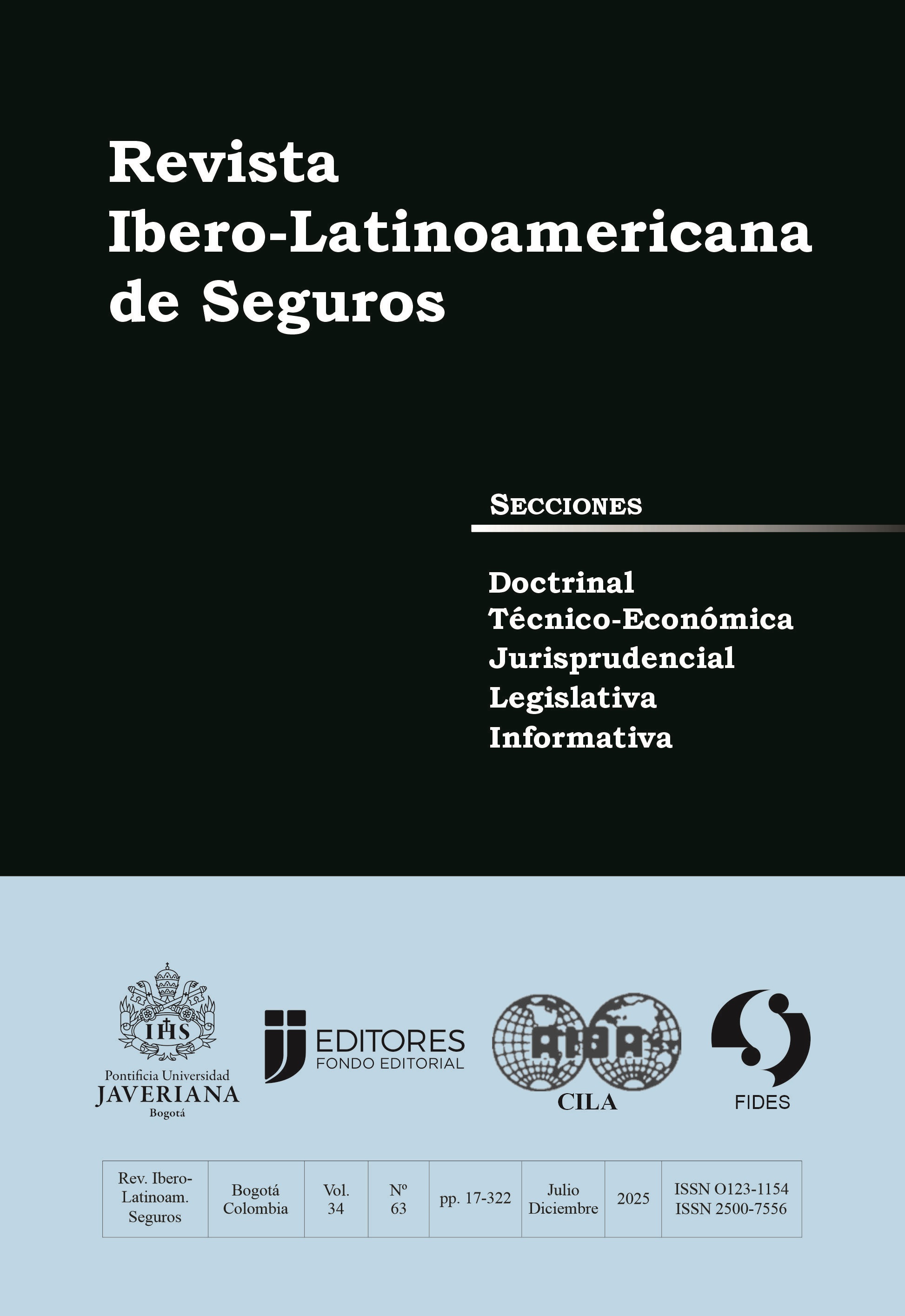Abstract
The article examines termination ad nutum in insurance contracts, as provided for in Art. 1071 of the Commercial Code, as a discretionary power that allows either party to extinguish the contractual relationship without invoking just cause. The paper clarifies the legislator's terminological imprecision in using the word "revocation," arguing that "termination" is the appropriate term due to its ex nunc (prospective) effects. Its features are described: a unilateral, liberating act that requires communication to be effective, with a temporal asymmetry in its effects. For the policyholder (or the insured, as the case may be), the termination is effective immediately upon communication; for the insurer, a minimum prior notice of ten days, calculated from the date of dispatch, is required. The economic effects are also detailed: the return of the unearned premium and the survival of accrued rights.
The paper also analyzes the limits to this power, including good faith and the prohibition of the abuse of rights, as well as legal restrictions by line of business (life, transport, SOAT, and surety). Finally, it offers a critical analysis of judgment SC3281-2024 by the Supreme Court of Justice, identifying the risks of distorting the nature of this power when the decision is delegated to third parties with conflicts of interest.
Código Civil Colombiano (Ley 84 de 1873)
Código de Comercio Colombiano (Decreto 410 de 1971).
Corte Suprema de Justicia, Sala de Casación Civil. Sentencia del 14 de diciembre de 2001, expediente 6230.
Cornu, Gérard. Vocabulaire juridique, Association H. Capitant, Paris, Presses Universitaires de France, 1987.
Molina, R. (2006). La terminación unilateral del contrato ad nutum. Revista de Derecho Privado, n.° 10. Bogotá: Universidad Externado de Colombia. Recuperado de https://revistas.uexternado.edu.co/index.php/derpri/article/view/586/553.
Ospina Fernández, G. (1994). Teoría general de los actos o negocios jurídicos. 4.ª ed. Bogotá: Temis.
Pérez Vives, Á. (1955). Teoría general de las obligaciones. 2.ª ed., vol. III. Bogotá: Temis.

This work is licensed under a Creative Commons Attribution 4.0 International License.



